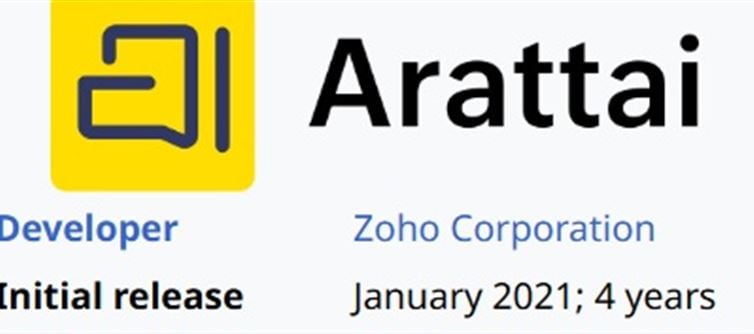
Arattai wasn’t born yesterday. It was launched four years ago, riding the wave of anti-WhatsApp sentiment and “self-reliance” hype. Yet, four years later, the most basic expectation of a modern messenger — full end-to-end encryption — still doesn’t exist. Instead, chats continue to pass through Zoho’s servers, decrypted in transit, wide open for anyone with access.
Coincidence? Or convenience? Because just a month after Arattai’s launch, Zoho’s founder sridhar Vembu was appointed to the National Security Advisory Board (NSAB), chaired by Ajit Doval — the same establishment obsessed with control, monitoring, and surveillance. That’s not a random footnote. That’s context. And context changes everything.
1. Four Years, No Excuse
Signal had E2EE from day one. whatsapp rolled it out across a billion users in less than two years. iMessage had it more than a decade ago. But Arattai? Four years later, only “secret chats” and calls are encrypted. Why? Either Zoho lacks the technical talent (unlikely for a billion-dollar company), or encryption-by-default isn’t in their interest.
2. The government Connection Nobody Talks About
Within a month of Arattai’s release, sridhar Vembu was sitting on India’s National Security Advisory Board, handpicked under Ajit Doval. That’s not a harmless appointment; it’s a direct bridge between corporate infrastructure and state surveillance strategy. When the government wants “lawful access,” who do you think will resist harder — Signal’s Moxie Marlinspike in exile, or a board member of Doval’s circle?
3. The Perfect Trojan Horse
Arattai sells itself as a “Made in India” alternative to WhatsApp. But what happens when patriotism becomes the cover for mass monitoring? If your chats aren’t encrypted end-to-end, then they’re visible somewhere in Zoho’s cloud. And if Zoho’s founder is sitting in the room with national security hawks, then the line between private conversation and state intelligence feed becomes dangerously thin.
4. The RSS Connection: Ideology Meets Technology
sridhar Vembu openly endorses the RSS, an organization with a history of militant ideology disguised as cultural nationalism. Supporters call him a visionary; critics call him dangerous. But here’s the undeniable fact: someone with allegiance to a surveillance-driven ideology has no incentive to build a messenger that protects you from surveillance. A man sold in a soft-spoken package is still in control of the sale.
5. Privacy Promises vs. Power Politics
When a company says, “trust us,” but keeps your chats sitting decrypted on its servers, that’s not incompetence — that’s design. Arattai’s lack of universal E2EE cannot be separated from Zoho’s political entanglements. Encryption would lock the government out. Non-encryption keeps the door wide open. And Arattai has chosen its side.
⚡ Bottom Line:
Arattai isn’t just a messenger. It’s a test case in how corporate loyalty, ideology, and state power converge at the cost of citizen privacy. Four years without end-to-end encryption is not an oversight; it’s a strategy. And until Arattai flips the switch, every chat you send could be fuel for someone else’s agenda.




 click and follow Indiaherald WhatsApp channel
click and follow Indiaherald WhatsApp channel